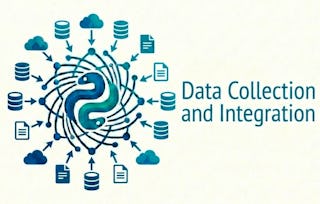This course presents research conducted to increase our understanding of how data collection decisions affect survey errors. This is not a “how–to-do-it” course on data collection, but instead reviews the literature on survey design decisions and data quality in order to sensitize learners to how alternative survey designs might impact the data obtained from those surveys.

Data Collection: Online, Telephone and Face-to-face

Data Collection: Online, Telephone and Face-to-face
This course is part of Survey Data Collection and Analytics Specialization

Instructor: Frederick Conrad, Ph.D.
16,348 already enrolled
Included with
353 reviews
What you'll learn
Appricate and compare the pros and cons of self-administered modes and interviews
Explore the emerging modes and data sources such as mobile web surveys and social media data
Understand the key concepts about survey data collection methods
Skills you'll gain
Details to know

Add to your LinkedIn profile
5 assignments
See how employees at top companies are mastering in-demand skills

Build your subject-matter expertise
- Learn new concepts from industry experts
- Gain a foundational understanding of a subject or tool
- Develop job-relevant skills with hands-on projects
- Earn a shareable career certificate

There are 4 modules in this course
In this lesson, you will be introduced to some key concepts about survey data collection methods that we will rely on throughout the course. By the end of this lesson, you should be well acquainted with the major sources of survey error and how these are affected -- usually in the form of tradeoffs -- by the particular mode used to administer questions and capture responses.
What's included
12 videos5 readings1 assignment1 discussion prompt
This second lesson focuses on modes in which survey respondents self-administer questions and provide their responses directly to researchers. By the end of Lesson 2, you will understand the pros and cons of self-administered modes from the TSE perspective.
What's included
9 videos3 readings1 assignment1 discussion prompt
In this lesson, we explore the various roles interviewers take on beside asking questions and collecting answers, as well as some of the different approaches to interviewing that have been proposed and how they affect the accuracy of responses. By the end of Lesson 3, you will appreciate the benefits and costs of collecting data in interviews and will be able to contrast them with the costs and benefits of self-administration.
What's included
9 videos3 readings1 assignment1 discussion prompt
In this lesson, we focus on some new data collection modes such as mobile web surveys and SMS text interviews, as well as alternative data sources such as sensor data, administrative data, and social media. By the end of this lesson, you will have a sense of the issues to which survey methodologists and survey researchers are devoting much of their attention these days. You will be able to weigh the pros and cons of these new methods and data sources.
What's included
12 videos5 readings2 assignments1 discussion prompt
Earn a career certificate
Add this credential to your LinkedIn profile, resume, or CV. Share it on social media and in your performance review.
Instructor

Offered by
Explore more from Psychology
 Status: Free Trial
Status: Free TrialUniversity of Michigan
 Status: Free Trial
Status: Free TrialUniversity of Colorado Boulder
 Status: Free Trial
Status: Free TrialUniversity of Maryland, College Park
 Status: Free Trial
Status: Free TrialUniversity of Maryland, College Park
Why people choose Coursera for their career

Felipe M.

Jennifer J.

Larry W.

Chaitanya A.
Learner reviews
- 5 stars
72.80%
- 4 stars
20.39%
- 3 stars
5.09%
- 2 stars
0.56%
- 1 star
1.13%
Showing 3 of 353
Reviewed on Jul 19, 2016
There is one word for this Course "Amazing". No matter if you are a undergrad student or a seasoned researcher, you'll feel that you have learned a lot from this course.
Reviewed on Jul 8, 2017
This is an excellent course. I am very satisfied with all the material.
Reviewed on Jun 10, 2022
Professor Conrad is knowledgeable and easy to understand. I enjoyed the inteviews as well.

Open new doors with Coursera Plus
Unlimited access to 10,000+ world-class courses, hands-on projects, and job-ready certificate programs - all included in your subscription
Advance your career with an online degree
Earn a degree from world-class universities - 100% online
Join over 3,400 global companies that choose Coursera for Business
Upskill your employees to excel in the digital economy
Frequently asked questions
To access the course materials, assignments and to earn a Certificate, you will need to purchase the Certificate experience when you enroll in a course. You can try a Free Trial instead, or apply for Financial Aid. The course may offer 'Full Course, No Certificate' instead. This option lets you see all course materials, submit required assessments, and get a final grade. This also means that you will not be able to purchase a Certificate experience.
When you enroll in the course, you get access to all of the courses in the Specialization, and you earn a certificate when you complete the work. Your electronic Certificate will be added to your Accomplishments page - from there, you can print your Certificate or add it to your LinkedIn profile.
Yes. In select learning programs, you can apply for financial aid or a scholarship if you can’t afford the enrollment fee. If fin aid or scholarship is available for your learning program selection, you’ll find a link to apply on the description page.
More questions
Financial aid available,

